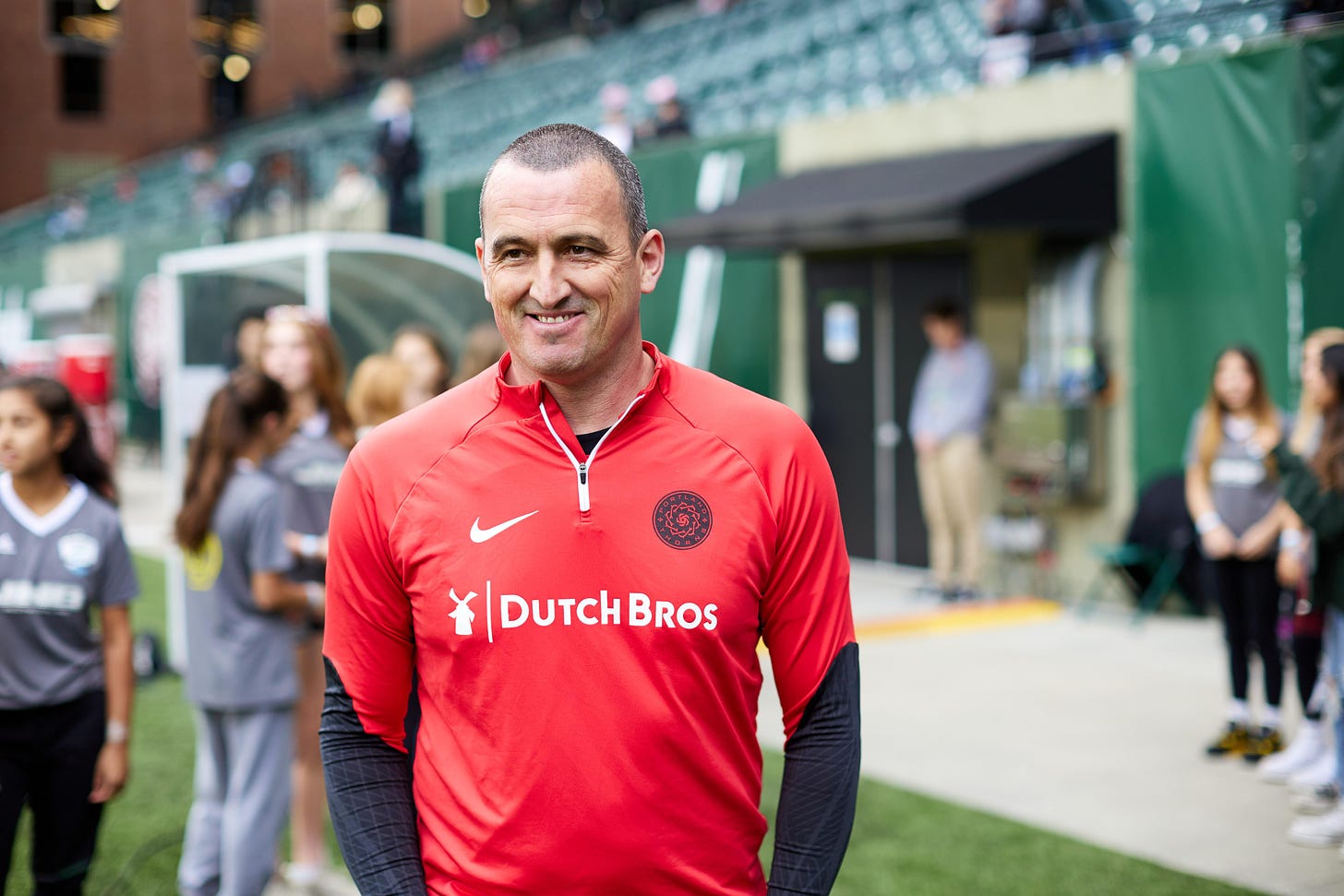The Big Interview: Mike Norris
The Northumberland born coach is now in charge of USA's current NWSL champions, but he's had an unconventional path to get there...

“It’s been a whirlwind,” admits Mike Norris, with a wry smile. The 43-year-old Portland Thorns coach has been at the helm at one of the USA’s most successful women’s teams since the start of the year, yet most of his coaching career has been spent between the sticks as a goalkeeper coach, hence his description of a rapid rise to the top.
Norris’s playing career back in his homeland England, where he grew up in Northumberland close to his beloved Newcastle, spanned no more than youth football before he set off across the world travelling, and while admitting it was never planned this way, he’s never looked back.
“There was no plan. I’d be naïve to say 15 years ago I envisioned where I am now, I’d have been a lunatic to think that…”
It has led to him settling first in Vancouver, Canada, and then Portland, where he now lives with his wife and two children, and the past two years alone has brought him an Olympic gold medal with Canada and an NWSL Championship with the Thorns as assistant head coach last year.
“I’d love to tell you there was a plan, there wasn’t,” he laughs, through his still strong Geordie accent. “It’s almost like my coaching journey in the sense it’s just evolved as I’ve done things. I left home in 2004 to travel with my friends, I’d had the chance a few years prior and turned it down, then got to a stage in my life where I needed something different.
“It wasn’t with the intent of never going back to Newcastle, but since I left in November 2004 I haven’t lived in Newcastle since. I learned a lot about myself, when I went to Vancouver my eyes were opened up. I love Newcastle to bits, but saw the world a bit more and applied for a working holiday visa.”
Norris began to use his goalkeeping knowledge and expertise and worked at various local clubs in Vancouver, such as Mountain United FC, before spending four years with Quest University’s men’s and women’s team as an assistant coach too, then a quick spell at Vancouver’s main club, the Whitecaps.
“There was no plan. I’d be naïve to say 15 years ago I envisioned where I am now, I’d have been a lunatic to think that.
“There were opportunities, there was an evolution of me as a person and my hunger and desire which grew with each move. It’s crazy to think I’ve lived here full-time since 2006. I left at 24, so it’s arguably a third of my life. 70% of my adult life I haven’t been in Newcastle, which feels crazy to say.”
He adds, “It’s [Newcastle] my home, but it’s not really now. I’ve got my wife and kids here. They’ve been to Newcastle, but it’s not home to them, our home is here in Portland and Vancouver. It’s wild when I rethink to those days, 2004 is a long time ago.”
After five years as a goalkeeper coach in the Canada youth sides, Norris was promoted to the first team after the 2019 World Cup and would go on to be part of the setup which won gold in Tokyo two years ago, before joining the Thorns as an assistant coach to former Canadian international herself Rhian Wilkinson.
The pair formed a successful partnership and when Wilkinson suddenly resigned, Norris was a popular choice among the squad to take them into the 2023 season.
It does mean he has gone from a goalkeeper coach to an assistant coach to a head coach in the space of two busy years, a path not many who coach between the two goal posts make, but Norris believes his previous experienced have helped him make the adaption smoother.
“I wouldn’t say it’s too different from a strictly football perspective, even in my role as goalkeeper coach with previous teams, I was never strictly a goalkeeper coach. I did a lot of defensive work with the back four, a lot of set-piece work.
“Every role I’ve had has evolved to more than it was. Even last year as an assistant coach I’d be heavily utilised in terms of tactics, game preparation, so from that perspective I did a lot of the head coach stuff, but not the managing up, player communication and everything else.”
Check out over 100 more unique stories in WFC’s Premium section, available for just £45 for 12 months, paid in one go, or a £6 a month rolling subscription.
All subscriptions come with a 7-day free trial to allow you to explore our full archive.
Plus, guarantee you everything that is to come over the next 12 months…
He goes on to admit that has been the biggest change, now that he’s responsible for much of the off-field issues too, rather than just concentrating on what goes on when the players hit the pitch on a weekend.
“The day to day is busy, but just different. Your bandwidth is just required everywhere. It’s not that all decisions go through you, but they pass through you, so your attention is needed everywhere and to get into some deep work can be challenging at times.
“The word coach is interesting because in one sense it’s the same job, but it’s also so flipping different. I’ve done the head coach role, but not on a permanent basis. The schedule from week to week, day to day is non-stop, but it’s fun and that’s the great part of it from one game to the next, whether you have momentum or not, you don’t have long to change things.
Keep reading with a 7-day free trial
Subscribe to Women's Football Chronicles to keep reading this post and get 7 days of free access to the full post archives.


